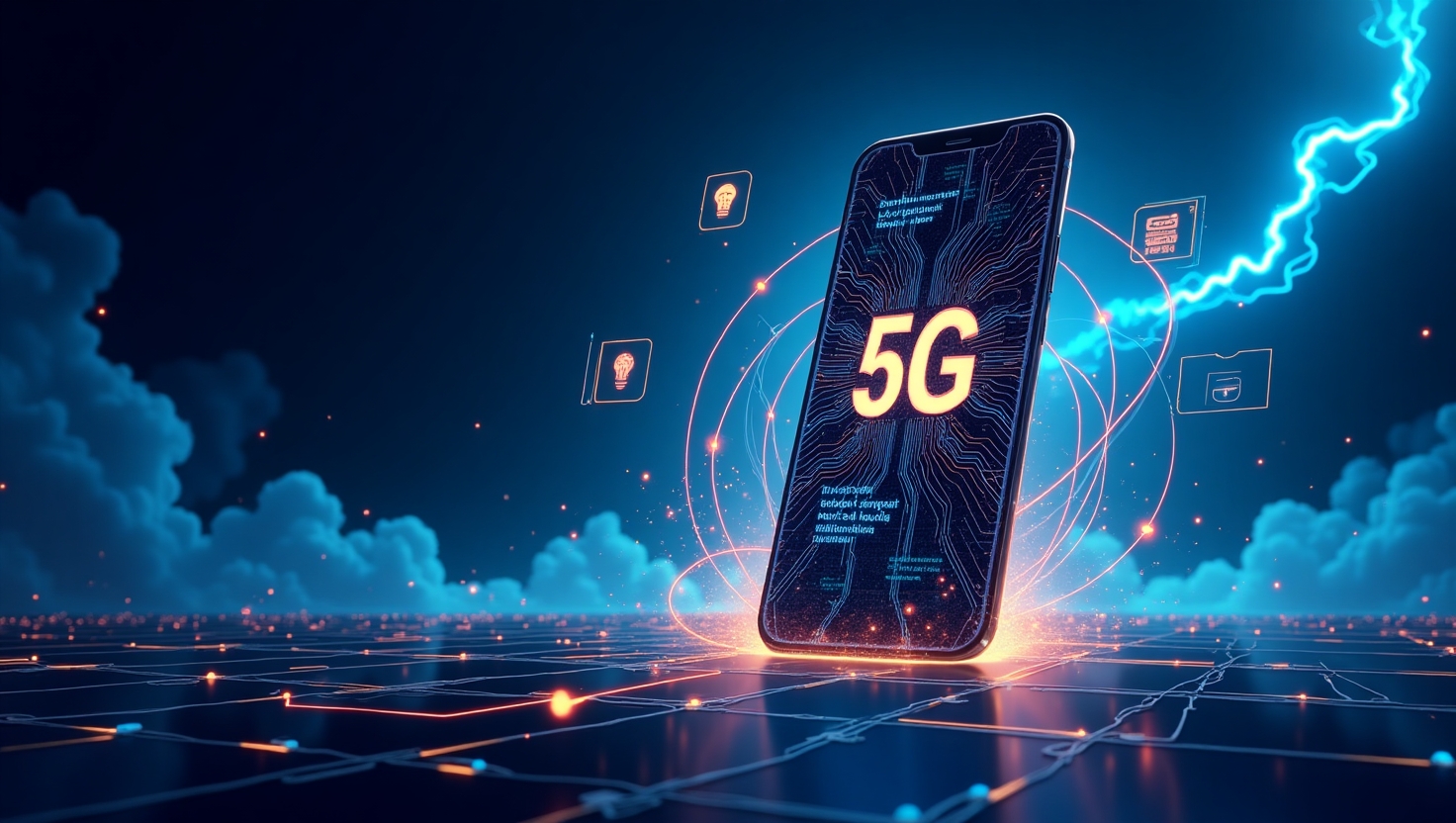5G is the fifth generation of mobile network technology that offers unprecedented speed, reliability, and connectivity. For mobile app developers and businesses, this means access to real-time capabilities that were previously impossible on 4G.
With speeds exceeding 10 Gbps and ultra-low latency (as low as 1ms), 5G is not just an upgrade—it’s a game-changer in the world of mobile app development.
Build apps faster, smarter, and stronger—powered by 5G.

Key Advantages of 5G for Mobile Apps
| Advantage | Impact |
|---|---|
| Faster Data Transfer | Seamless video streaming, downloads, and real-time sync |
| Low Latency | Instantaneous response for interactive apps |
| Higher Device Density | Supports more devices per square kilometer |
| Enhanced AR/VR | More immersive and stable augmented reality experiences |
| Cloud Integration | Apps can offload storage and processing to the cloud |
With 5G, developers can push the limits of mobile app features and performance.
New Opportunities Enabled by 5G
- Real-Time Multiplayer Gaming
Smooth, lag-free gameplay with server communication in milliseconds. - Smart Cities and IoT
5G enables apps to interact with sensors, traffic systems, and connected devices in real time. - Remote Healthcare
Telemedicine apps can now support HD video, remote diagnostics, and AR-based procedures. - Immersive AR/VR
With 5G’s bandwidth, apps can deliver richer, more interactive augmented experiences. - Live Streaming & Events
Low latency allows real-time engagement for sports, concerts, and news apps.
Impact on App Performance and UX
- Shorter Load Times: Users can access features without delays
- Better Video Quality: Smooth HD and 4K streaming becomes standard
- Fewer App Crashes: Reliable connectivity enhances app stability
- Battery Efficiency: Faster operations can reduce background activity
These performance gains result in higher user satisfaction, longer session durations, and improved app ratings.
5G Use Cases Across Industries
| Industry | 5G App Potential |
|---|---|
| Retail | AR product previews, real-time inventory tracking |
| Logistics | GPS + IoT integration for route optimization |
| Education | Virtual classrooms with real-time interactivity |
| Finance | Instant fund transfers, live data trading platforms |
| Travel | Smart itineraries, live maps, and immersive tours |
Each industry can redefine user experiences with faster, more intelligent apps powered by 5G.
Considerations for Developers
- Backward Compatibility: Ensure the app still performs well on 4G devices
- Cloud-Based Features: Shift to cloud computing for lighter, faster apps
- Data Usage Management: High-speed data may lead to faster usage—optimize accordingly
- Security: Protect high-speed data exchanges with encryption and secure APIs
Developers should be proactive in adapting architectures and workflows to embrace 5G capabilities.
FAQs
1. What makes 5G different from 4G for apps?
> 5G is up to 100x faster and significantly reduces latency, enabling real-time and immersive experiences.
2. Do all users need 5G to benefit from these changes?
> No, but apps designed for 5G can offer enhanced features to users with 5G devices while remaining functional on 4G.
3. Will 5G increase mobile app costs?
> Not necessarily. While apps may add features, cloud integration and faster performance can lower maintenance costs.
4. How can developers prepare for 5G?
> Optimize for speed, cloud interaction, security, and backward compatibility.
5. Can 5G impact app SEO or ASO?
> Yes. Faster apps improve engagement and retention—key metrics for app store optimization.
Conclusion
The rise of 5G is reshaping mobile app development by enabling advanced features, real-time interactions, and smarter integrations. Whether it’s immersive gaming, remote work, or cloud-based computing, 5G empowers businesses to create the next generation of mobile apps.
As more devices adopt this technology, early movers in 5G-ready app development will stand out in terms of user experience, performance, and innovation.



